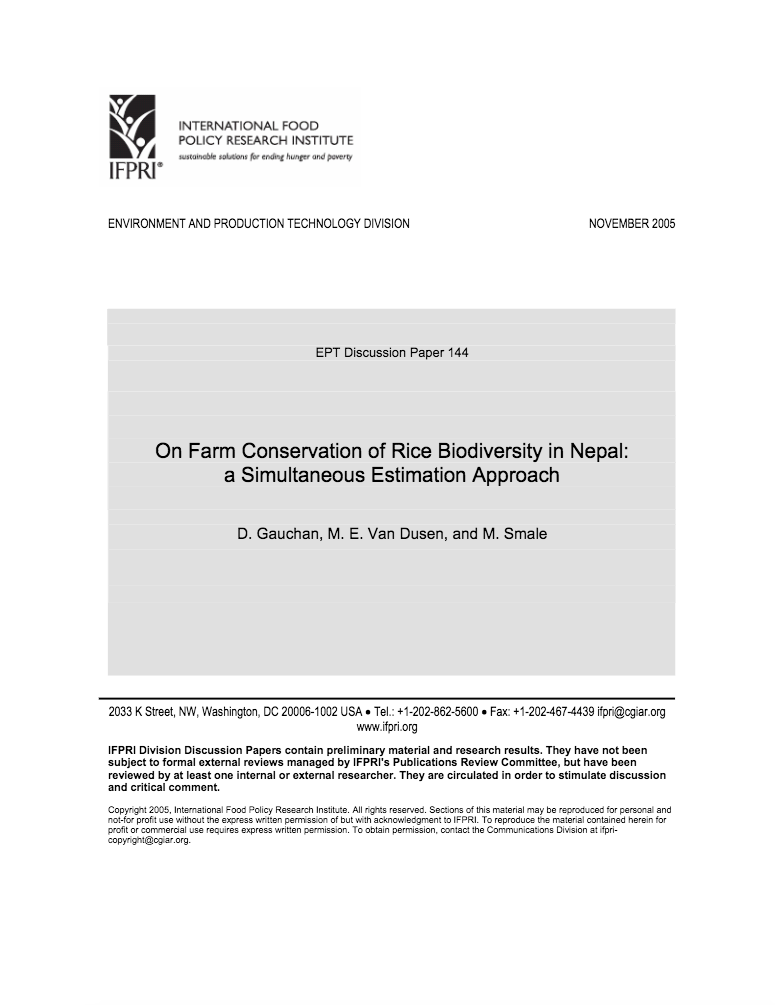Resource information
"This paper presents an empirical case study about farmer management of rice genetic resources in two communities of Nepal, drawing on interdisciplinary, participatory research that involved farmers, rice geneticists, and social scientists. The decision-making process of farm households is modeled and estimated in order to provide information for the design of community-based conservation programs. A bivariate model with sample selection treats the simultaneous process of whether farmers decide to plant landraces or modern varieties, and whether the landraces they choose to plant constitute genetic diversity of interest for future crop improvement. Findings show that the two landrace choices are affected by different social and economic factors. The estimation procedure demonstrates that in certain cases, however, the decision processes are interrelated. Policies to promote the conservation of local rice diversity will need to take both processes into account. Fitted equations are then used to compare the likelihood that households targeted for conservation according to one set of conservation criteria also meet other conservation criteria. Households most likely to plant landraces identified as important for crop improvement also grow richer, more spatially diverse rice varieties. In these communities, few policy trade-offs would result from employing one set of criteria instead of the other." -- Authors' Abstract


